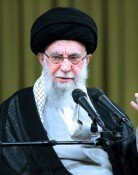Report: 1967 Spy Case Was Not Faked
Report: 1967 Spy Case Was Not Faked
Posted January. 27, 2006 03:06,
The National Intelligence Service truth commission led by Reverend Oh Choong-il announced yesterday that the 1967 East Berlin espionage case, also known as the Dongbaeklim incident, was not planned for political purposes by the administration of former President Park Jung-hee or made up by the Korean Central Intelligence Agency (CIA).
But the committee also said that the Korean CIA applied espionage charges to those related to the incident who visited North Korea, received money from the North, or violated the National Security Law. Such espionage charges are normally applied to those who detected, collected, leaked, handed over a state secret, or assisted a spy to help an enemy country.
There Was No Planning of the Incident-
According to the committee, the espionage case began in May 1967 when a professor identified as Lim who was studying in Germany confessed that he contacted North Korea to Hong, a nephew of former President Parks wife, and gave himself up to the Korean CIA. Before delivering himself to police, Lim met former President Park along with Hong and explained in detail about how Korean students in Europe were contacting the North, which led the president to direct the Korean CIA to conduct a thorough investigation.
The committee said, There was suspicion that the Park Jung-hee administration planned the incident to end the controversy over irregularities surrounding the June 8 general elections. But it turned out that the Korean CIA began its investigation before the general elections.
There Was No Fabrication of the Incident-
The investigation by the committee confirmed that 50 people among those related to the incident visited East Berlin, and another 12 visited North Korea, violating the National Security Law. The committee also said that the 26 who received money from the North and the 12 who obeyed requests from the North also violated relevant laws, such as the National Security Law.
The Korean CIA applied espionage charges and attempted-espionage charges to 23 of those related, and the prosecution also indicted them on the same suspicions. But none of the 23 were found guilty of espionage until the final trial in the Supreme Court was completed.
In addition, the Korean CIA said that a Seoul National University professor identified as Hwang was persuaded by the North to organize the Nationalism Comparative Study Association (NCSA) after coming back to Korea in an effort to topple the Park Jung-hee government. But Kim Hyung-wook, chief of the Korean CIA, acknowledged in his memoirs, It was wrong to include the NCSA in the Dongbaeklim incident.
Probable Torture-
Those associated with the incident and investigators presented mixed arguments about the possible use of torture. Some, including the late poet Chun Sang-byung, argued, There were tortures, including beating, electricity, and water tortures. But investigators refuted this, saying, There was no need for brutal treatment because the suspects confessed without much resistance.
But the committee said that there is reason to believe the Korean CIA tortured at least 14 suspects after considering the concreteness and consistency of the arguments of those who said they were tortured.
Illegal Kidnapping of Overseas Residents-
The committee said that the Korean CIA illegally took 30 people related to the incident from Germany, France and the U.S. back to Korea. The committee added, Korean CIA agents brought those associated with the incident to the Korean embassy in the countries by sending them a false invitation of dinner or to Korea. After bringing them in, the agents sent them back to Korea, using force on some of them.
Yoon I-sang Is Not a Spy-
The Committee confirmed that the late composer Yoon I-sang received a total of about $5,000 from North Korea on nine occasions and had visited the communist country.
However, the committee concluded that it is hard to view Yoon as a spy, considering that he refused to join the Communist Party, resisted Pyongyangs training for a secretive political party, and maintained a superficial relationship with the country.
It is unfair to apply espionage charges to passive activities related to Pyongyang and label Yoon as a spy, the committee said.
Myoung-Gun Lee Dong-Yong Min gun43@donga.com mindy@donga.com




![[단독]폴란드, 韓 해군 최초 잠수함 ‘장보고함’ 무상 양도 안받기로](https://dimg.donga.com/c/138/175/90/1/wps/NEWS/IMAGE/2026/02/27/133437397.1.jpg)


